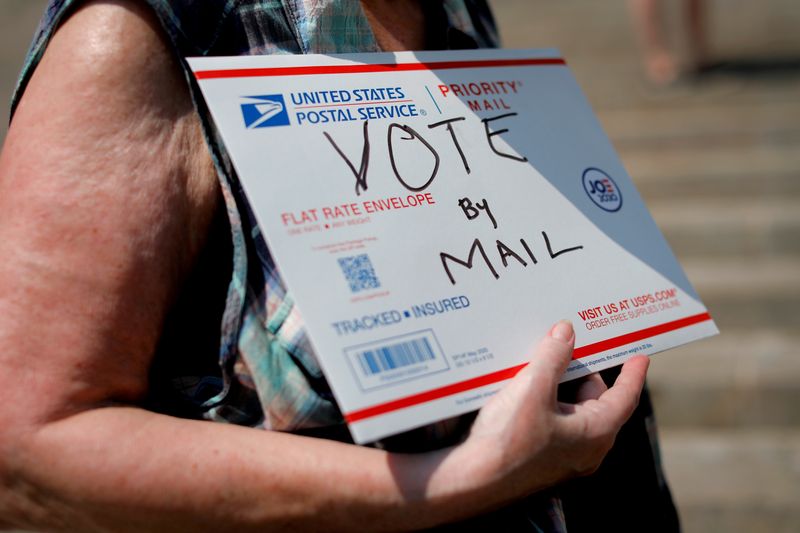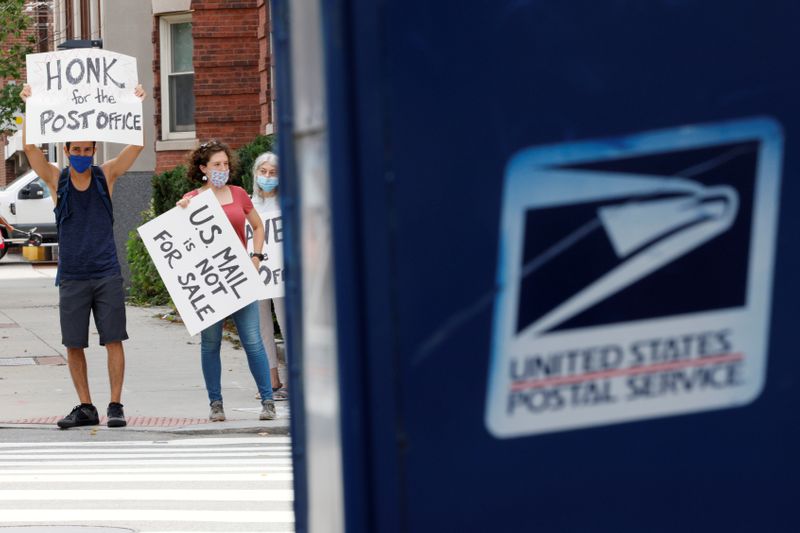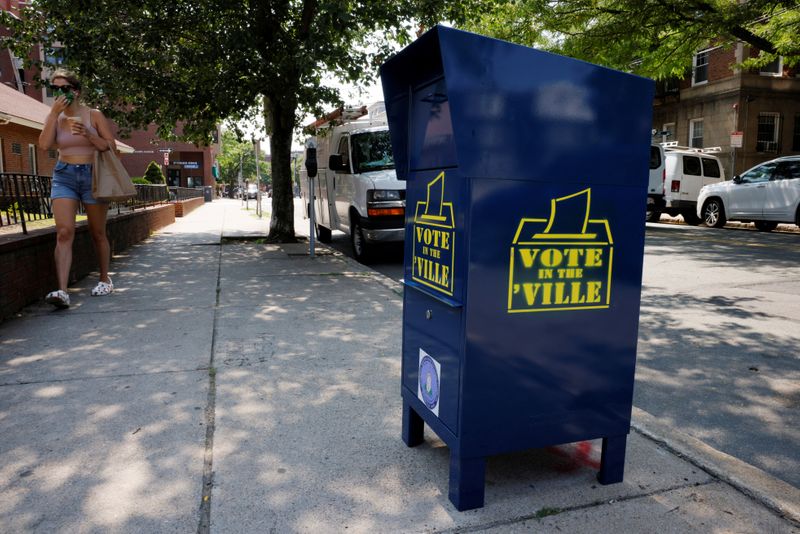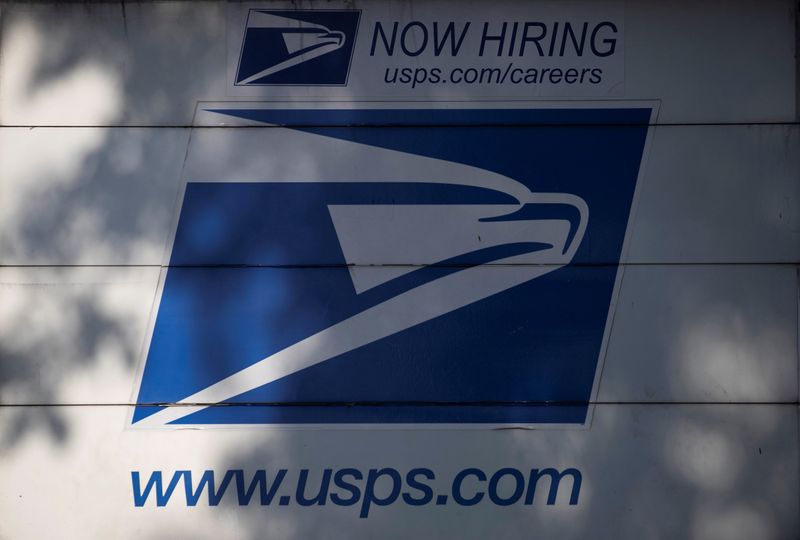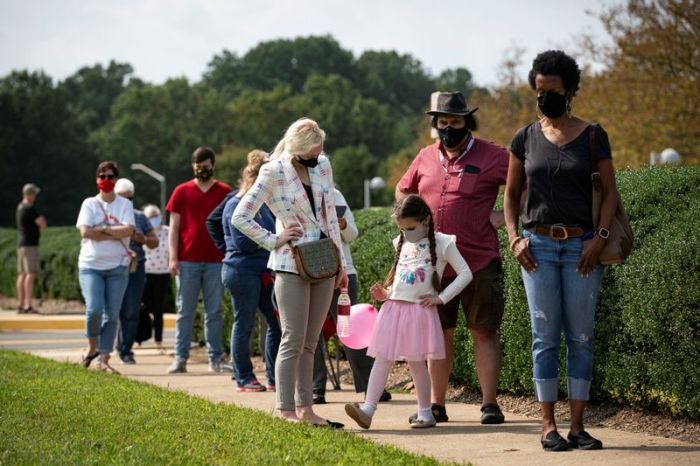(Reuters) – A federal judge on Thursday blocked controversial changes to the United States postal service, saying they were “a politically motivated attack” that had slowed the nation’s mail and likely would slow the delivery of ballots in the upcoming presidential election.
U.S. District Judge Stanley Bastian in Yakima, Washington, said he was issuing a nationwide injunction sought by 14 states in a case against U.S. President Donald Trump, Postmaster General Louis DeJoy, and the U.S. Postal Service over July changes to the service.
The 14 states, led by Washington, had filed a motion for a preliminary injunction asking the court to immediately halt a “leave mail behind” policy that required postal trucks to leave at certain times, regardless of whether mail was loaded.
The states also asked for all election mail be treated as first-class mail, for the replacement of necessary sorting machines that had been removed, and for the postal service to abide by DeJoy’s commitment to suspend the changes until after the Nov. 3 election.
DeJoy, a Trump supporter, said in August that he would halt many of the cost-cutting changes he put in place until after the presidential election after Democrats accused him of trying to put his thumb on the scales to help Trump, which he has denied. A surge in mail-in ballots is expected because of the coronavirus pandemic.
“The states have demonstrated that the defendants are involved in a politically motivated attack on the efficiency of the postal service,” the judge said after about 2 1/2 hours of arguments that Reuters heard by phone.
“They have also demonstrated that this attack on the postal service is likely to irreparably harm the states’ ability to administer the 2020 general election.”
The judge said the preliminary injunction would essentially be issued as the states requested and he would file a written order with details, likely later on Thursday.
U.S. Postal Service spokesman Dave Partenheimer said while the agency was exploring its legal options, it was “ready and committed to handle whatever volume of election mail it receives.
“Our number one priority is to deliver election mail on-time,” Partenheimer said.
Lee Moak, election mail committee chair of the postal service’s board of governors, called any suggestion of a politically motivated attack on efficiency “completely and utterly without merit.”
At the hearing, Kristin Beneski, a lawyer for the Washington Attorney General, told the judge critical mail already had been delayed for weeks at a time, including ballots. She also noted reports that postal trucks had left for cross-country trips empty.
Attorney Joseph Borson, who represented the defendants, said the postal service was prepared to timely deliver election mail and that the problems have largely been resolved.
He also said that the states were required to bring the matter to the Postal Regulatory Commission, not the courts.
“The postal service has and will continue to do extraordinary efforts to ensure all ballots are delivered,” Borson said, but added there are “physical limits to what it’s able to do.”
Besides Washington, states joining the lawsuit include Colorado, Connecticut, Illinois, Maryland, Michigan, Minnesota, Nevada, New Mexico, Oregon, Rhode Island, Vermont, Virginia and Wisconsin.
Similar lawsuits by states are pending in Pennsylvania and New York.
“Today’s victory protects a critical institution for our country,” Washington state attorney general Bob Ferguson said after the ruling. “Americans can now confidently vote by mail and have their voices heard.”
(Reporting by Karen Freifeld; additional reporting by David Shepardson; Editing by Chris Reese and Aurora Ellis)

